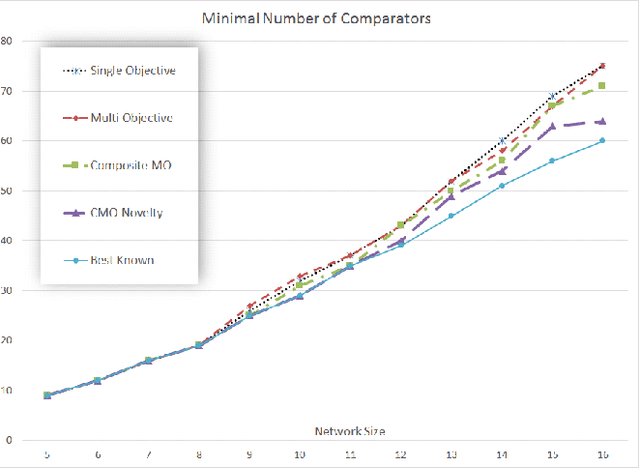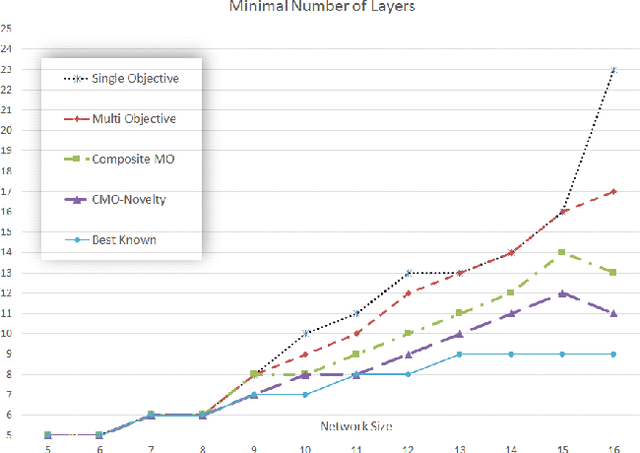Enhanced Optimization with Composite Objectives and Novelty Selection
Paper and Code
Jul 05, 2018



An important benefit of multi-objective search is that it maintains a diverse population of candidates, which helps in deceptive problems in particular. Not all diversity is useful, however: candidates that optimize only one objective while ignoring others are rarely helpful. This paper proposes a solution: The original objectives are replaced by their linear combinations, thus focusing the search on the most useful tradeoffs between objectives. To compensate for the loss of diversity, this transformation is accompanied by a selection mechanism that favors novelty. In the highly deceptive problem of discovering minimal sorting networks, this approach finds better solutions, and finds them faster and more consistently than standard methods. It is therefore a promising approach to solving deceptive problems through multi-objective optimization.
 Add to Chrome
Add to Chrome Add to Firefox
Add to Firefox Add to Edge
Add to Edge